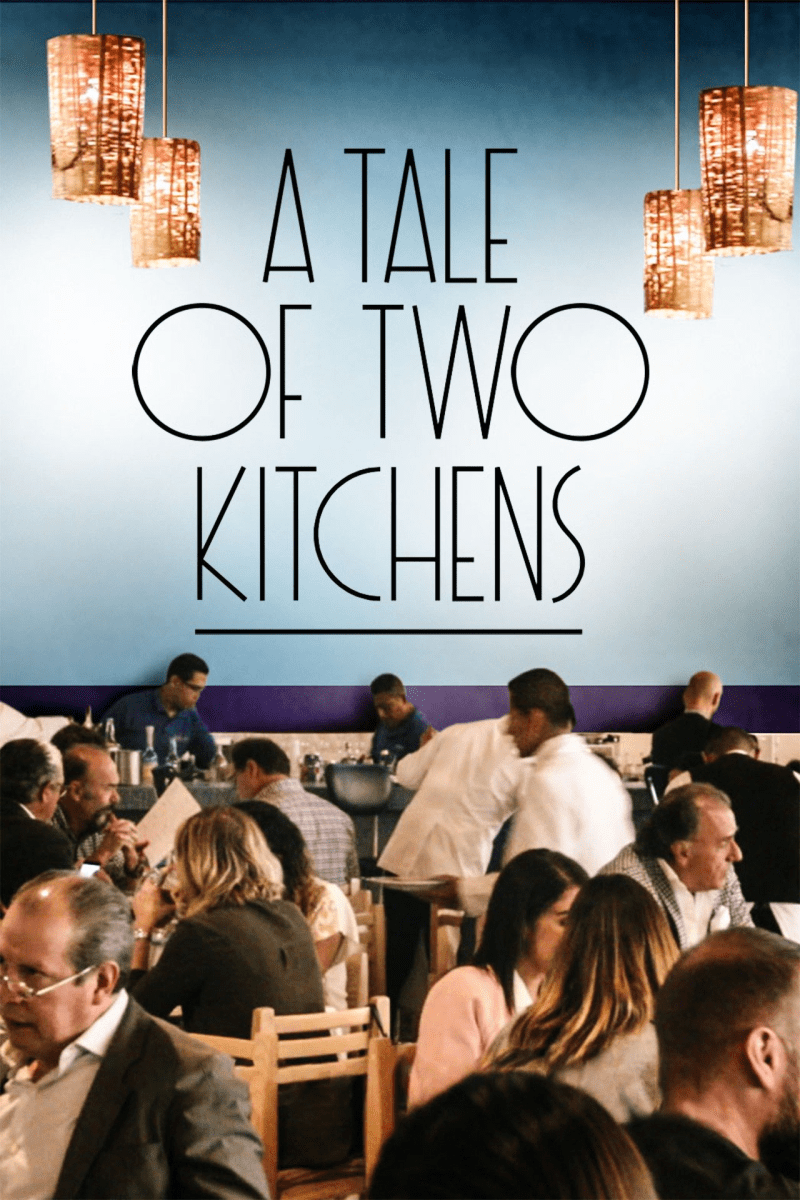“A Tale of Two Kitchens,” a documentary released on Netflix on May 22, tells the story of two restaurants owned by Mexican restaurateur Gabriela Camara. Directed by Trisha Ziff, the short film explores the dynamics of working in the culinary industry and the spirit that fuels Camara’s restaurants.
The interior of Contramar, which opened in 1988 in Mexico City, features geometric designs with light blue wallpaper and silver fish decorations that evoke a peaceful marine environment. Accompanied by tranquil classical music, the documentary begins with a showcase of dexterous kitchen skills such as shrimp slicing, avocado spreading and meat weighing. The documentary is narrated by owners and workers at the two restaurants and features an insider’s look into food preparation and restaurant set-up.
“The idea of Contramar, from the beginning, was to bring the beach from the part of the Pacific to the city,” Camara recalled. “People came to Contramar because they couldn’t get away for the weekend. And I said, ‘That’s just perfect.’”
The documentary celebrates the diversity of the restaurant employees, who come from places such as Mexico, Argentina, Guatemala and El Salvador. What makes the culture of the two restaurants unique is their acceptance of people from all backgrounds, including those with criminal histories.
“We’ve always hired people with histories of conviction. That’s been part of our philosophy from day one. We believe that people deserve a second chance,” said Emma Rosenbush, managing partner of Cala.
Throughout the documentary, Ziff works hard to portray the all-inclusive culture of the two restaurants. A key way in which she does so is by juxtaposing Mexican culture with traditional American restaurants and more generally, Western traditions and ways of living. The restaurants are so successful, Ziff seems to argue, largely because of the welcoming culture inherent in Mexico.
Mao Bravo, general manager of Contramar, added, “At Contramar, the philosophy is to serve and to help. If someone comes and has an alcohol problem, we don’t get rid of them. We try to find a way to help them to get through that rough patch. Having the opportunity to help people is a blessing.”
Cala, a Mexican seafood restaurant which was inspired by Contramar, is located in San Francisco. At Cala, all of the employees pool tips at the end of the night instead of earning individual tips. Such a practice embodies a work culture of togetherness, widespread in Mexico but not as much in an American culture that champions individualism. At Contramar and Cala, it is not just the quality of the food that leads to success, but the spirit that drives the restaurant’s principles. That inclusion has fostered a warm and vibrant culture at the restaurants, with co-workers treating each other like family and regarding their work as integral to their lives.
“I think of Contramar as my home. And I wouldn’t like for someone who comes to my home to have a bad time. We think of the restaurant as part of ourselves, as part of the essence, as part of our lives. And we take a lot of pride in what we do,” said Bravo.
The documentary, which is dedicated to the Latino men and women who grow and cook the food that feeds America, honors the diversity of people who work in the culinary industry, many of whom come from immigrant backgrounds and struggle to navigate dual cultural identities. Ziff succeeds at showcasing the diversity of migrant workers by interweaving stories of the people who work at Cala and Contramar. Through short interview clips, we learn about these people, who hail from all walks of life, as they share their experiences ranging from their time serving in prison to working on farms.
“At the age of 15, I came to the U.S. I crossed the border illegally, as most people do. I made the decision to come here and was able to become a resident through asylum,” noted Mario Talavera, a waiter at Cala. “When you’re coming from a different country, whether you’re crossing the border or getting your visa, there’s a struggle.”
Although the documentary focuses on the stories of these two restaurants, the political backdrop of the situation of the people who work at these restaurants is difficult to ignore. Speaking to the sociopolitical nature of running her business, Camara said, “Opening a Mexican restaurant in the U.S. is a paradox, no matter how you look at it… we have a culture that deeply despises Mexicans.” While never explicitly criticizing the treatment of Mexican Americans, the documentary quietly encourages the embrace of people from all cultures and backgrounds.
While the stable stream of interviews and elegant shots of food-making can sometimes come across as a promotional reel, “A Tale of Two Kitchens” is a ultimately a testament to the working class people at the restaurants who believe in the dignity of their work and share a passion for serving food to others. It is also a celebration of the restaurants that have fostered their culture as one that encourages people to be considerate and kind, opening up doors and conversation among people in spite of language barriers and cultural differences.
“The culture of Cala is rich because it’s not all one. You have people with this experience of being incarcerated, people with this experience of having grown up in another country who come here and work two jobs,” said Rosenbush. “You get them all together and every single night, we create. And it’s only through that collaborative effort that this gets put on and produced. It’s extraordinary.”
Contact Annie Chang at [email protected].
